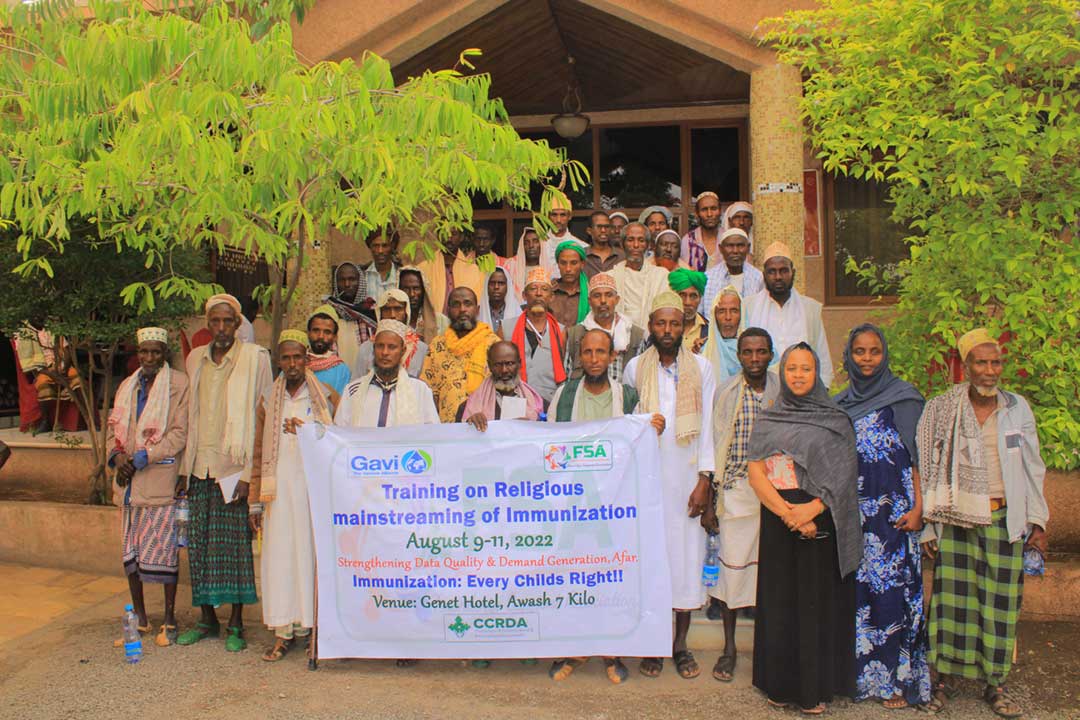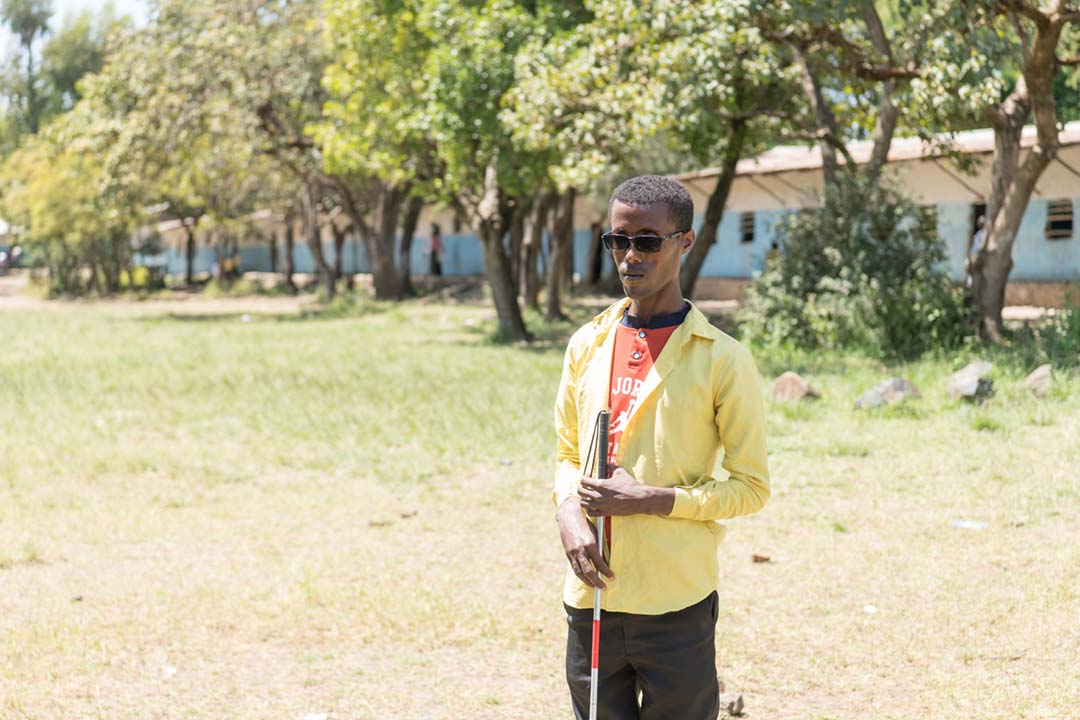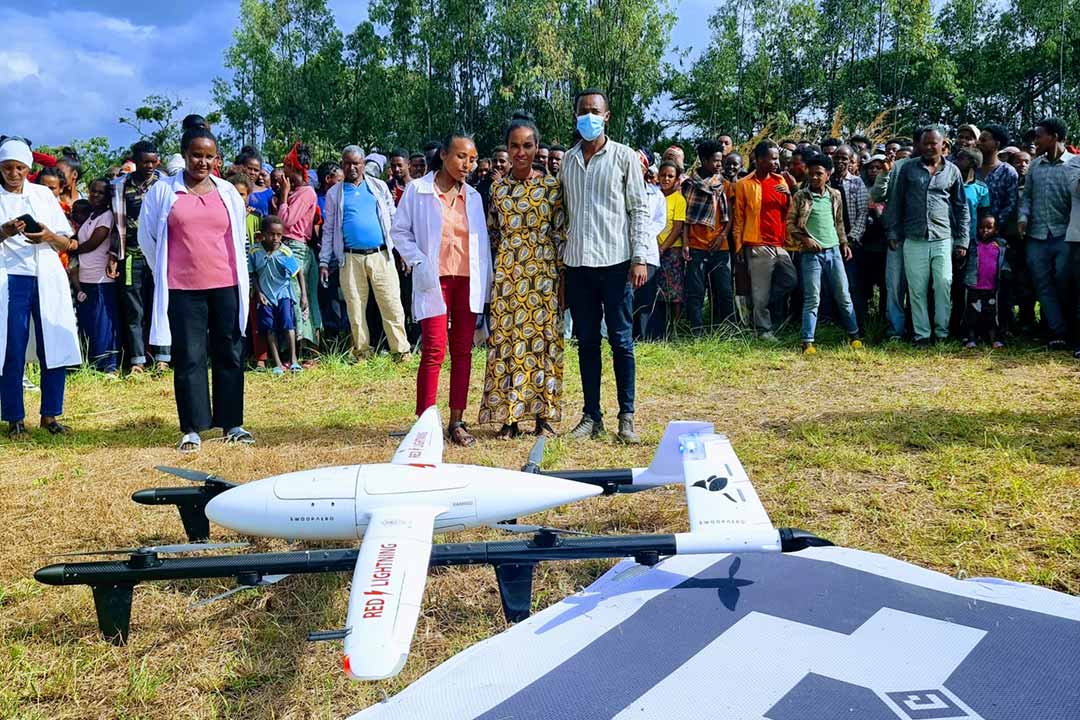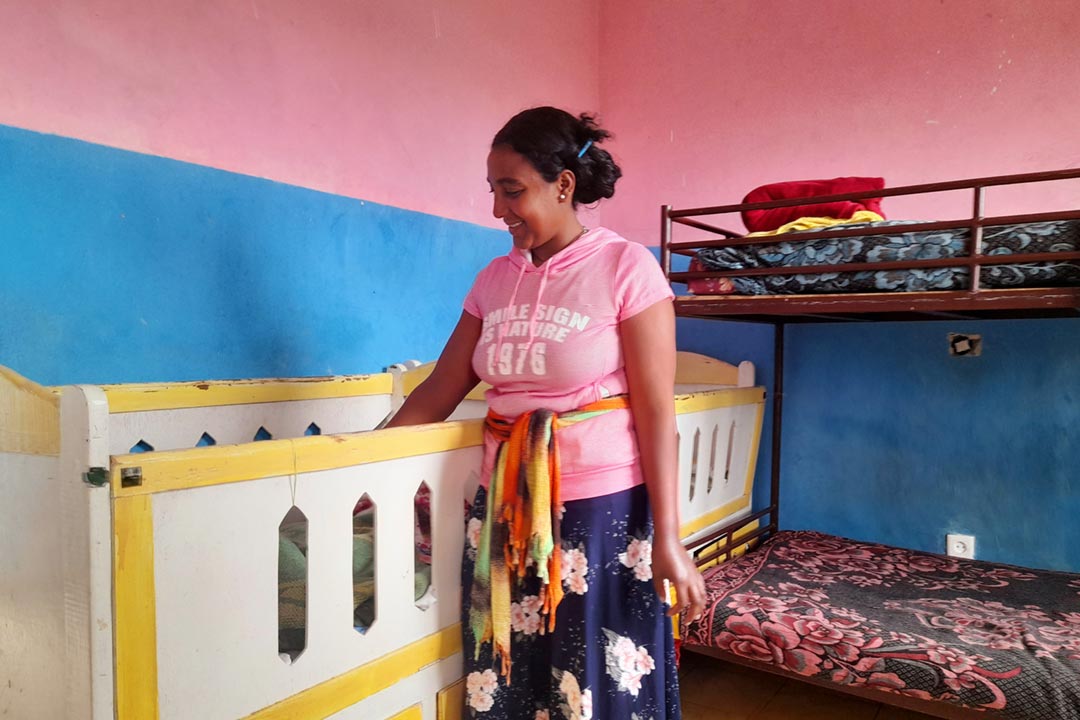Mobile health teams provide Ethiopia’s nomads with a lifeline
To ensure that children amongst Afar’s remote nomadic communities receive health services, health workers hit the road.
- 18 October 2022
- 5 min read
- by Solomon Yimer
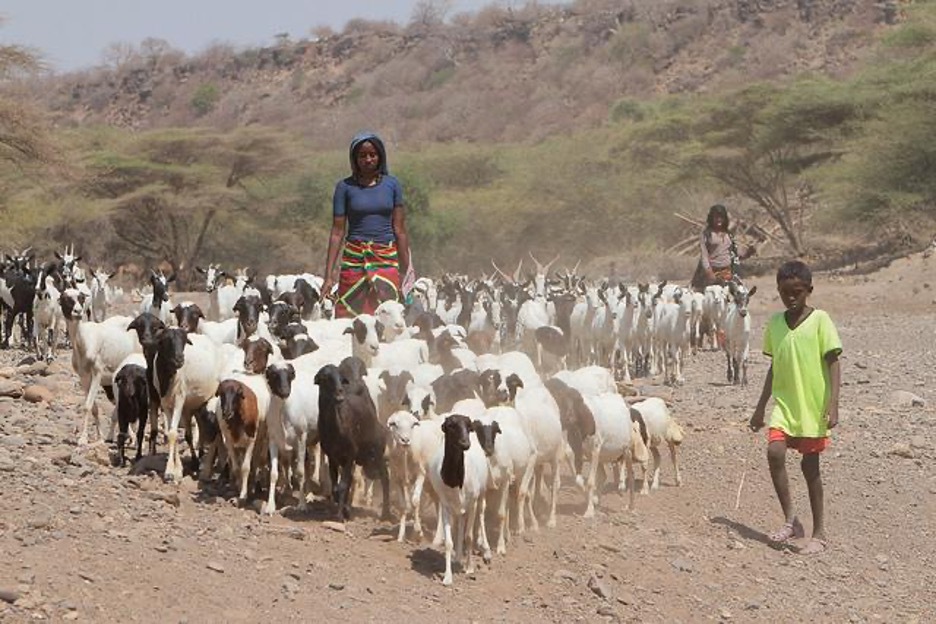
Every month, health professionals from Chifra District, in Afar, Ethiopia, load their vehicle with supplies for the nomadic pastoralist communities who live in the remotest kebeles (smallest administrative unit in Ethiopia), where infrastructure and access to basic services are scarce.
“I am happy to serve my community and always try my best to make sure every child in my community is vaccinated."
For the last four years, the team – made up of a nurse, an outreach supervisor, a nutrition assistant, a midwife and clinical officers – has provided immunisation, nutrition and primary healthcare to the ten most remote locations in the district.
This part of the country is an arid lowland area predominantly inhabited by pastoralists who make their living raising cattle, camels and goats. In the drought-prone region, they are forced to move from place to place in search of pasture and watering holes for their animals.
Due to the mobility of most of the communities in the region, contact with health facilities has been limited to times of serious illness or emergencies. This, according to Awol Gudele, Mothers and Children Vaccination Coordinator at the Afar Region Health Bureau, prompted the establishment of the mobile teams.
Awol says that there has been an increase in vaccine coverage and regional health officials are working to expand to other districts in the region to reach more pastoralist communities.
Previously, mobile health teams were only established at regional level but now district health offices are setting up their own teams.
"Chifra district mobile health team is a good example of how local experts' integration brings about positive impact to the community," says Awol. "Now we are looking at expanding these good practices to other districts in order to reach children in pastoralist communities with immunisation."
Fatuma Teshome, Expanded Programme on Immunisation (EPI) officer at Chifra district health office, is responsible for the mobile team's immunisation services. The team travels dozens of kilometres for her to vaccinate children in the herding communities.
Before each visit, Fatuma communicates with community leaders and local government bodies to both inform parents to bring their children for immunisation and get information on the current locations of the communities. They then travel to the areas which the pastoralists are moving through.
Have you read?
"As the health of these families is totally dependent on the visit of the mobile team, most of the community members, who need medical services, don't want to miss such campaigns," she adds.
On the travel day, she collects vaccines from the health centre, which she stores in a cool box to maintain the cold chain, and starts her journey with the team.
"Though there are health workers in each kebele, due to the traditional nomadic lifestyles of the community, the harsh weather and difficult geography, reaching every child with routine immunisation is not easy for them," says Fatuma. "That is why we travel every month to remote areas, which local health workers can't reach."
When the mobile team arrives at the designated location, the pastoralists from the surrounding area gather to receive health services. Fatuma says that they vaccinate an average of 200 children.
"If there are children we miss on that session, we ask parents to bring them to the next scheduled location," she says. "On the back of our improved immunisation performance, we are working on strengthening the programme and expanding to more locations in the district. We also need to support health workers at health posts who have limited facilities."
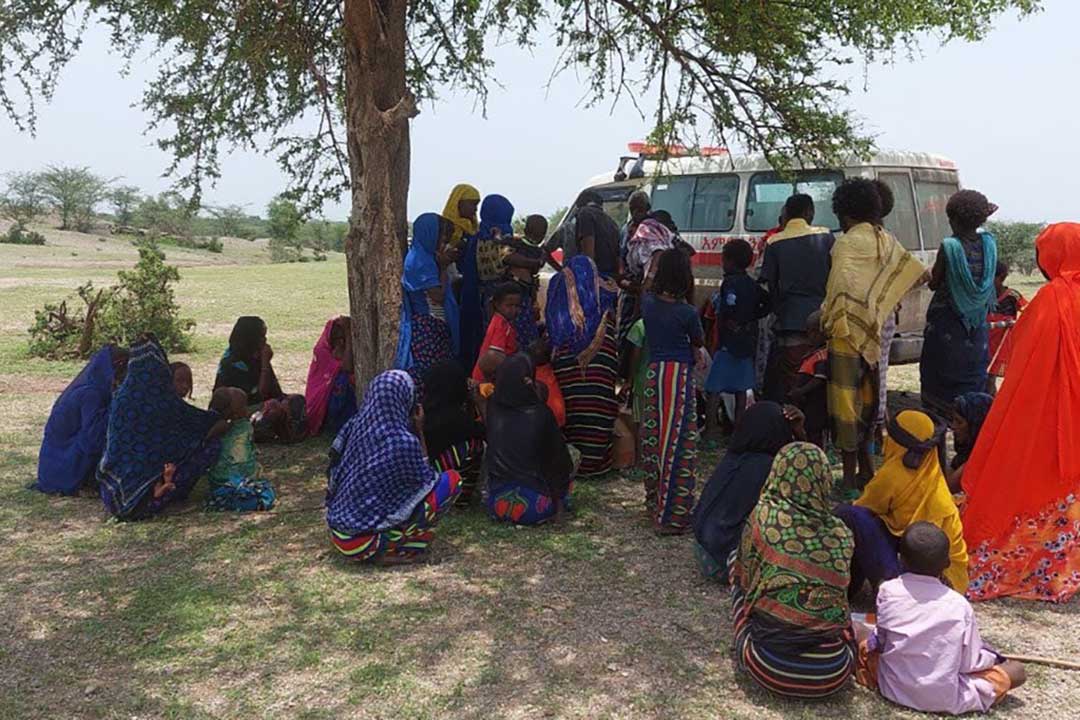
Credit: Chifra District Health Office
Asiya Deto, a health worker at Alu health post, agrees and says that in order to expand immunisation coverage in the pastoralist communities, every health post at kebele level has to be equipped with the necessary facilities and workforce. For health workers like Asiya, the lack of means to transport vaccines, refrigeration, electricity and other inputs are daunting barriers.
"We usually can't vaccinate as many children as planned and waste a lot of time travelling. Even when the pastoralists return to their kebele, accessing the children is not easy. It will take all of us – health workers, authorities and partners – to improve routine immunisation coverage in the area."
Despite challenges in serving these mobile communities, Asiya says, "I am happy to serve my community and always try my best to make sure every child in my community is vaccinated. And, thanks to awareness campaigns and the efforts of health extension workers recruited from the communities, people are now aware of the importance of vaccines. There are parents from the pastoralist community who frequently call and check the next scheduled immunisation day."
Nuru Hussien, a resident of one of the pastoralist kebeles, whose three children have been vaccinated by the mobile team, is grateful for the health services being brought closer to them.
"In this area, because of the drought, we move around a lot and haven't had much support. The mobile health services save the lives of those who cannot go to the health facility due to transportation and capacity constraints," he says.
It also helps that, in addition to routine immunisation, the health teams also provide nutritional supplements and counselling on baby nutrition and hygiene for mothers.
More from Solomon Yimer
Recommended for you






